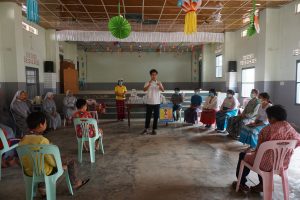The COVID-19 situation in Myanmar continues to worsen, raising fresh questions about the viability of the country’s upcoming elections. After having survived the first few months of the pandemic almost totally unscathed, COVID-19 infections began to spike in Myanmar at the beginning of the month.
As of September 27, Myanmar’s health authorities had reported 10,734 COVID-19 cases and 226 deaths from the virus. The country now has the fifth-largest case load in Southeast Asia, and is on the cusp of leapfrogging Malaysia, which had registered a total of 10,919 cases as of September 27. Measured in per capita terms, Myanmar sits in sixth place at 197 cases per million people – nearly four times that of neighboring Thailand.
On September 21, Yangon, the country’s largest city, went into lockdown, producing the eerie vistas of deserted city thoroughfares that have become familiar wherever the contagion has made serious inroads. Earlier, China locked down the city of Ruili in Yunnan province, a major land-border crossing point with Myanmar, after two COVID-19 cases were discovered. Meanwhile, in a bid to prevent a further spread of infections, Thailand has stepped up security patrols along its 2000-kilometer shared border with Myanmar.
Myanmar’s COVID-19 spike coincided almost perfectly with the opening of the two-month campaign period running up to national elections on November 8. Myanmar’s Union Election Commission (UEC) has since announced a raft of measures to “COVID-proof” the election.
To ensure social distancing at polling stations, the UEC has pledged to increase the number of polling stations from 40,000 to 50,000. Staff will have to wear personal protective gear while voters will be instructed to wash their hands before casting a ballot. In the meantime, the UEC has suspended door-to-door campaigning and public rallies; it has also restricted gatherings within buildings in areas of the country under lockdown.
Earlier in the month, the worsening outbreak prompted a group of 24 opposition parties to call for the UEC to postpone the election. But the UEC has ruled out any postponement, saying that its current measures are sufficient to ensure a free and fair poll.
The ruling National League for Democracy (NLD) has backed the decision, warning that any postponement, in a country where elections have historically been manipulated or canceled, could result in a political crisis. Said party spokesperson Dr. Myo Nyunt: “Postponing the election when it’s uncertain how the situation might develop in the future will simply result in more problems, including a political crisis on top of the current public health and economic problems.”
To a certain extent this is also motivated reasoning, given that the COVID-19 restrictions will weigh the heaviest on small political parties, and those located in remote outlying regions of the country where internet access is sporadic. In the overlap of this Venn diagram are Myanmar’s ethnically based parties, which some observers otherwise expected to make limited gains against the NLD in regions with large ethnic minority populations. As political analyst Yan Myo Thein told Reuters, “Many voters are in remote areas and it is difficult to know how much access they have to online campaigns,” he said.
While most observers expect that the NLD and its talismanic leader Aung San Suu Kyi will easily win re-election, following the party’s euphoric landslide victory in 2015, the restrictions add to the long list of problems with the election. These run from a spate of active civil conflicts and the mass disenfranchisement of Myanmar’s Muslim Rohingya community, to the fact that significant parts of the country’s periphery remain outside the effective control of the central government.
As Aung Thaung Shwe, an independent candidate who is running in the Buthidaung township of Rakhine State, told local media, “an election held under such circumstances cannot be a fair election.”
































